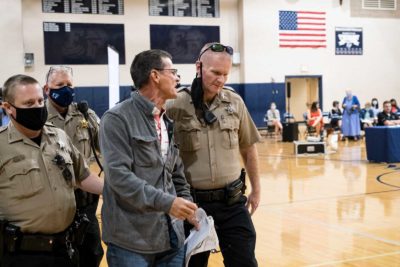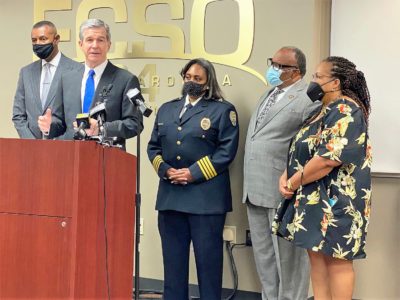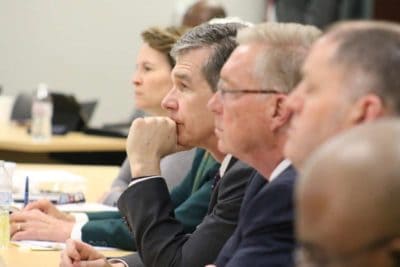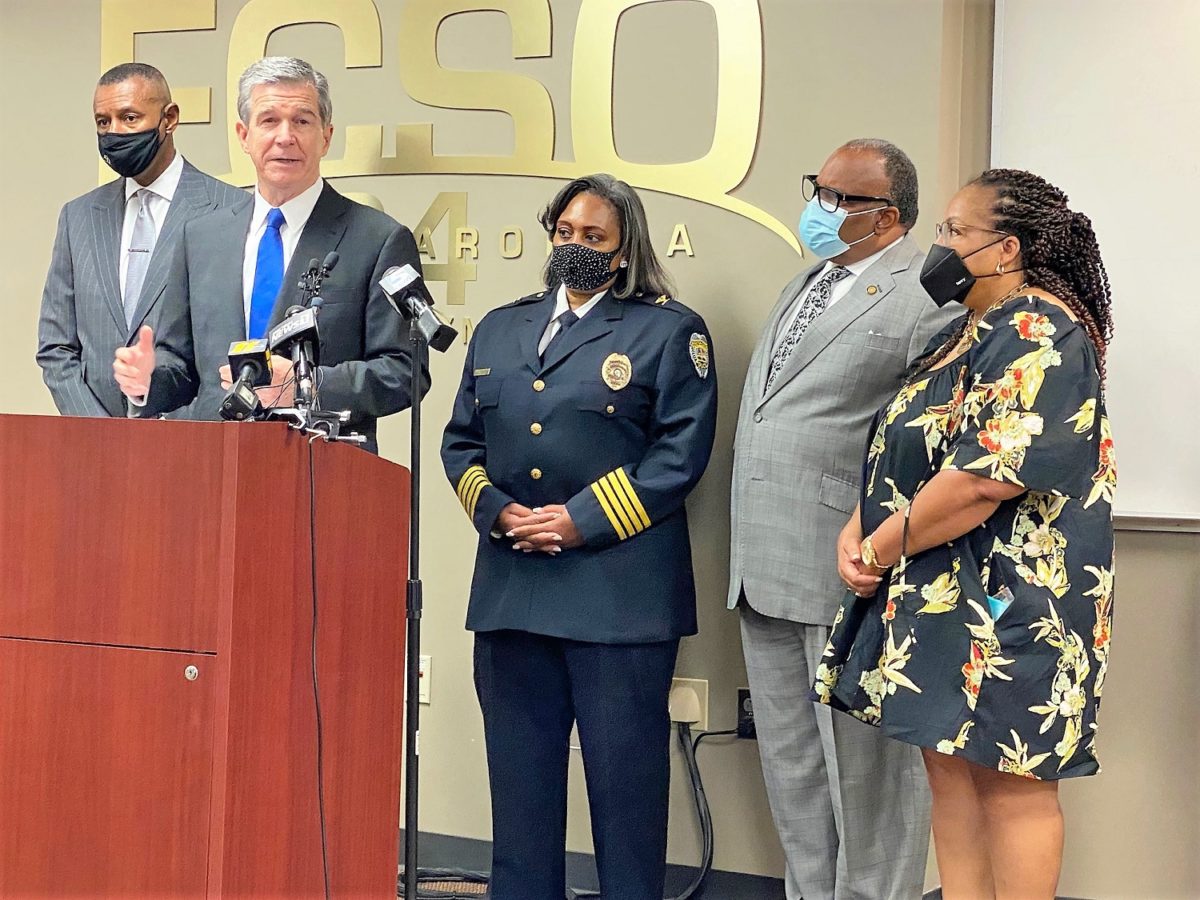

The North Carolina Task Force for Safer Schools heard today from Attorney General Josh Stein on gun violence, developed a statement on threatening behavior at school board meetings, heard from Gov. Roy Cooper on student mental health, and more. Here are some highlights from the meeting.
School shootings ‘chilling’ and ‘unacceptable’.
Stein sounded off on school shootings during the meeting, pointing out that at the beginning of the school year there were shootings in Wilmington and Winston-Salem, with one student even losing their life. He said that students are already struggling to adjust to learning during a pandemic.
“We cannot have them worrying more about violence breaking out on their campuses than they are about learning,” he said.
In addition to the shootings, Stein said there have been guns confiscated from students in Raleigh, Charlotte, and elsewhere, as well as multiple school lockdowns, including in his child’s school.
“As a parent, this reality is chilling and frankly, it’s unacceptable,” he said.
Stein said that adults have a responsibility to ensure that students are safe and noted a number of ways in which political leaders can do that now.
He noted recommendations on violence interruption programs, as well as the importance of safe gun storage. He said that many youth shootings are a result of guns being taken from places where they are not safely stored.
“The statistics we’re seeing are disturbing,” he said. “The number of child firearm deaths nearly doubled in just one year from 2019 to 2020, and that was true for older teens as well.”
He also talked about school risk management plans, which are required by state law and help school officials know ahead of time how they are going to handle emergencies on campus and coordinate with outside agencies. He said not all districts have turned in such plans.
“We need school personnel to be prepared for the worst because unfortunately the worst tragically sometimes occurs,” he said, adding later: “These plans can be the difference between life and death.”
Hear his full comments below.
Later in the meeting, task force Chair Billy Lassiter walked task force members through a presentation on juvenile firearm offenses.
According to the presentation, there were 6,894 juvenile firearm offenses in the past three years. Five percent of those were school-based incidents.
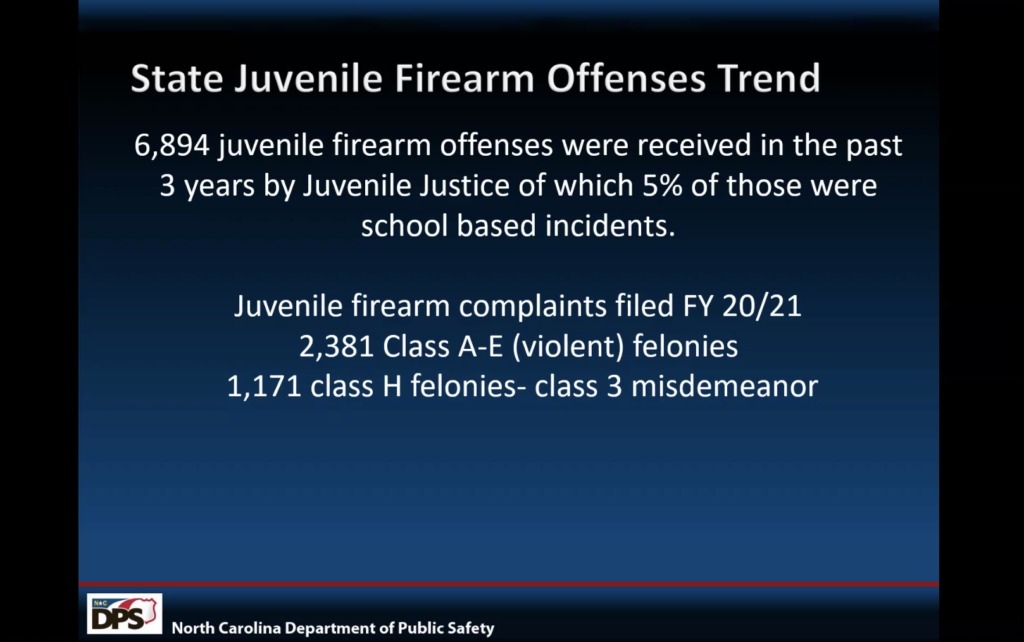

According to the data presented at the meeting, 60% of firearm offenses were committed by 16- or 17-year-olds in both 2019-20 and 2020-21.
Cooper on safer schools
“We know that it’s so important to keep our children learning in the classroom and keep them safe there,” Cooper said during his remarks to the task force.
He also referenced the school violence this year, saying that he thought school and district leaders acted quickly both during and after the shooting this semester at a school in Winston-Salem. But he said prevention is even more important.
“We want to prevent violent events from happening to start with,” he said.
He also referenced the long-running Leandro court case, saying that the constitutional requirement of providing the opportunity for a sound basic education includes addressing mental health.
A court in the Leandro case has ordered an eight-year plan be implemented by the state, which will require the Republican-led General Assembly to appropriate funds to make it happen. The judge, David Lee, has given lawmakers until next week to comply.
“The mental health part of it … it has become particularly acute during and as we emerge from this pandemic, because this pandemic was trauma,” he said. “And many students are dealing with the aftermath of that. We don’t want it to result in violence by students or violence toward the students themselves with the increase in attempted suicides and suicides that we’ve seen. So it’s so important that we do invest in a sound basic education.”
Hear his full comments below.
Behavior at school board meetings
Tension over mask mandates has been boiling over at school board meetings, leading the North Carolina School Boards Association (NCSBA) to ask Cooper and lawmakers for help, and sparking public statements, including from State Superintendent Catherine Truitt and State Board of Education Chair Eric Davis.
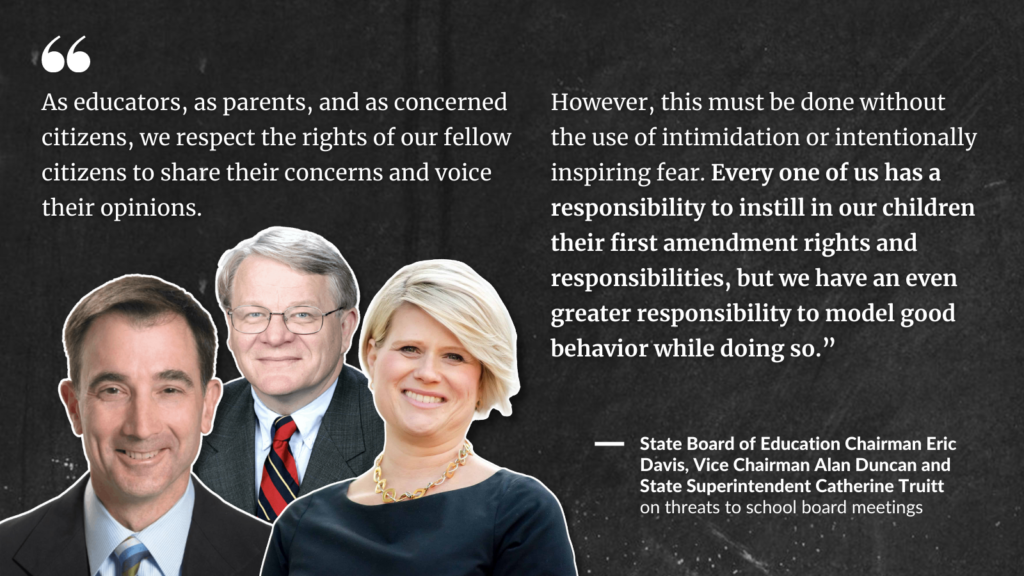

In response, the task force workshopped a statement about proper behavior at local school board meetings today. A final version was sent out later in the day. It is below.




